Convenience
At what cost?
Plastic packaging is renowned for its rugged durability, but it’s that exact quality which poses a threat to our planet and its wildlife. According to the House of Commons, an estimated five million tonnes of plastic is used every year in the UK, nearly half of which is packaging. With 2020 being a wake-up call in more ways than one, global communities have seen on a grand scale how a small change can make a big difference to the world we live in.
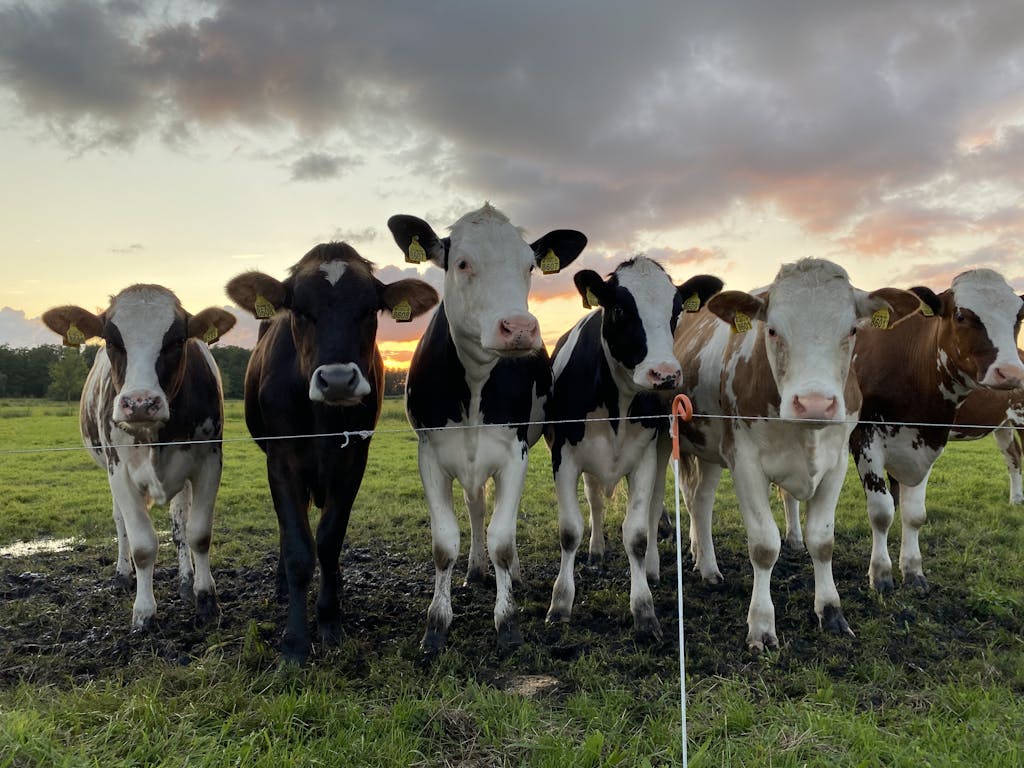
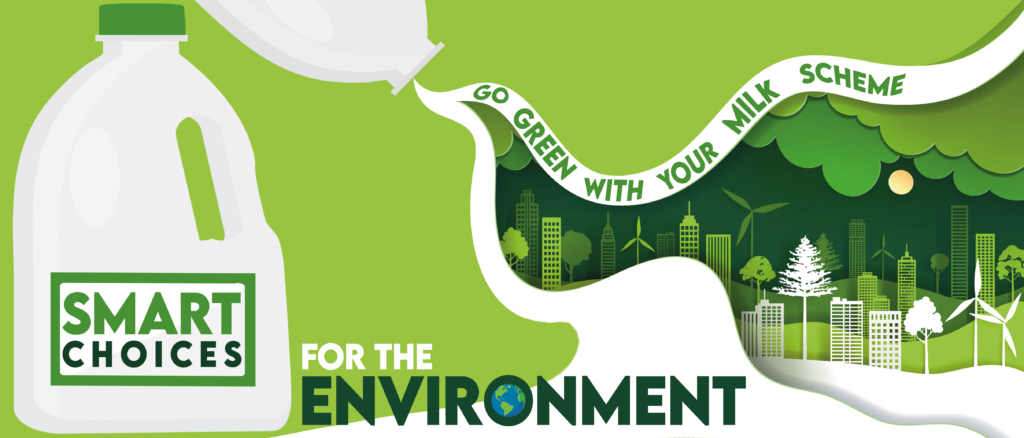
At Cool Milk, we’re acutely aware of the fresh focus on the ways in which products are packaged, delivered, and consumed – and milk is no exception. With the recent ban on single-use plastic straws in the UK, suppliers are under more pressure than ever before to create sustainable solutions, and we’re investing in doing just that. However, plastic isn’t the only peril threatening the environment – it’s merely one of the most visible. A far bigger threat is apathy and the unwillingness to consider change.
What’s right for one school or nursery might not be feasible for another, and there is no single solution. Whilst more time and research is needed to create the ‘ideal’ delivery system, there are steps we can take now to reduce our negative environmental impact without compromising on quality – and the statistics may surprise you! Scroll to explore the options available to see how you too can go green with your milk scheme!
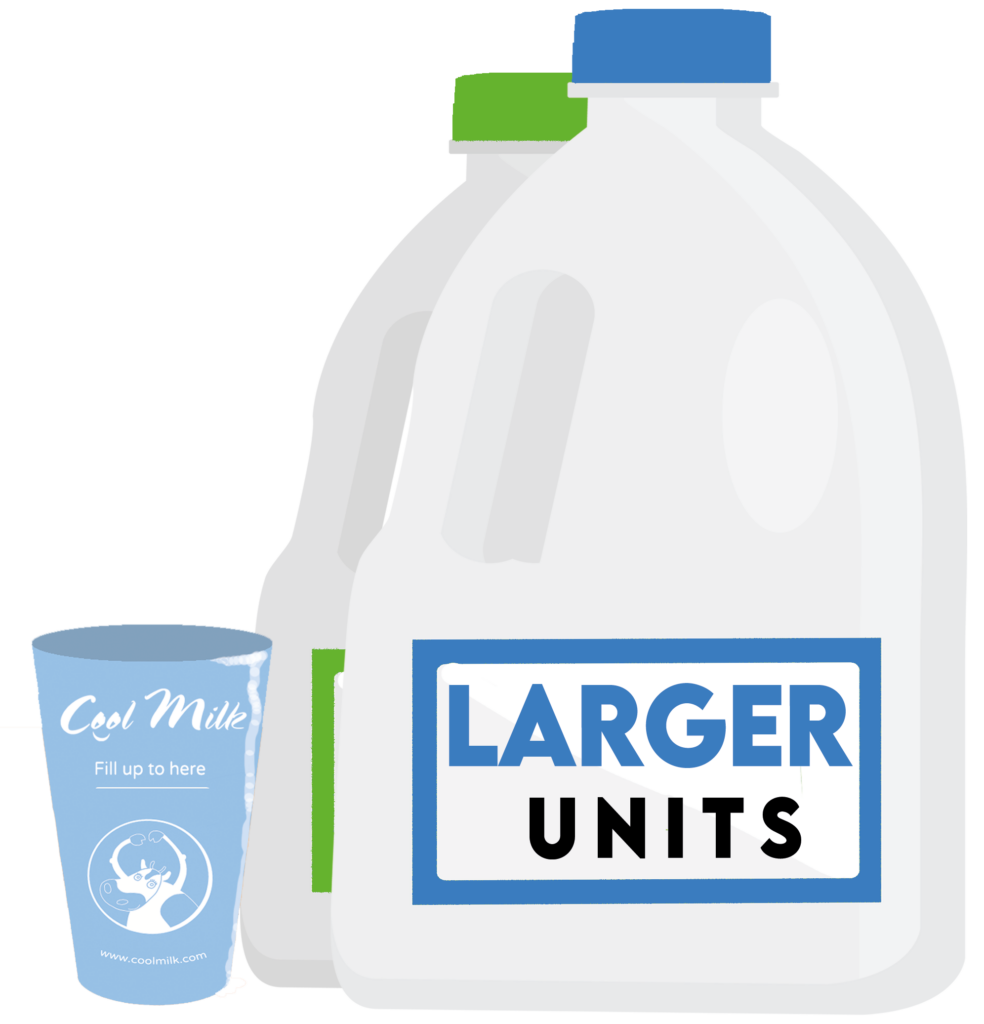
larger containers
Less plastic
One of the most effective ways to reduce waste in your school milk scheme is to opt for larger containers. This way, the children receive their daily milk entitlement but with minimal packaging – and absolutely no straws. Yes, this uses plastic – but let’s look at the facts rationally: our larger 2 litre poly bottles are readily recyclable in most localities across the UK and, due to being a lightweight material, it puts minimal strain on delivery vehicles – reducing fuel usage and associated pollution more than some ‘greener’ alternatives!
As an extra bonus, we’ll even provide FREE robust and reusable cups for the children to enjoy their milk from – complete with a ‘fill to here’ line so that they don’t miss a drop. This way, the only waste is if you don’t recycle – or if the little ones aren’t thirsty!
Have Some Questions?
We’ve Got Answers
Glass Bottles
reuse. recycle.
An old solution to the modern problem of plastic pollution, glass bottles can be reused and are readily recyclable in most locations. You can request these from our friendly Customer Service team if you feel this is right for your setting and we will do our best to supply them – depending on availability from your local dairy farms and suppliers.
However, while glass is transparent – its environmental impact isn’t quite as clear cut. In fact, this article (citing a study from Detritus journal) revealed that glass is up to four times more damaging for the environment than plastic.
This is due to a variety of factors, but includes an increased carbon footprint due to its weight, which puts more pressure on delivery vehicles and increases fuel usage and pollution as a result.
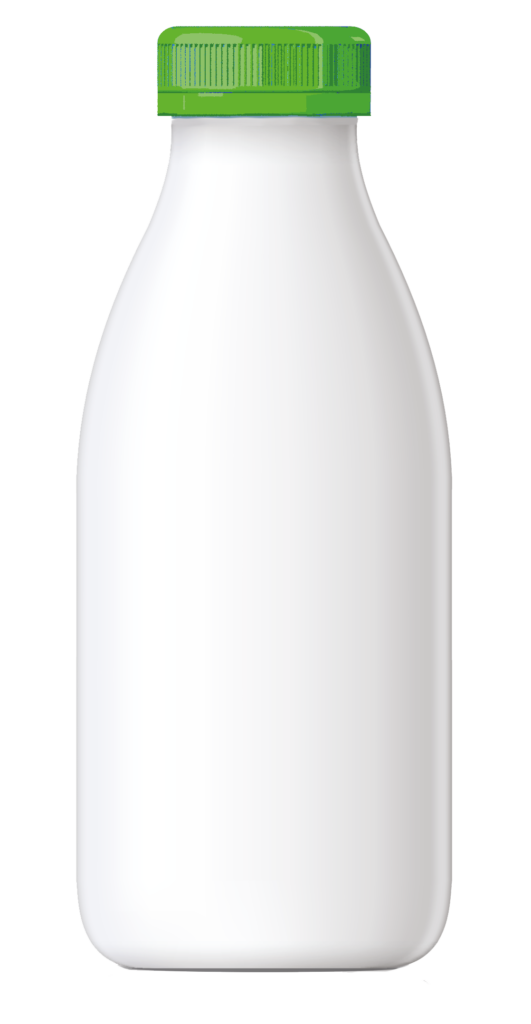
There is also its large mining footprint, which requires raw materials such as silica and sand to be extracted from the ground – causing land degradation and can pollute surrounding water sources. Finally, glass is easily breakable, which reduces the lifespan of the materials and can lead to broken bottles being discarded with waste and not recycled. Of course, this poses a problem for many schools due to health and safety, so many prefer to avoid it entirely.
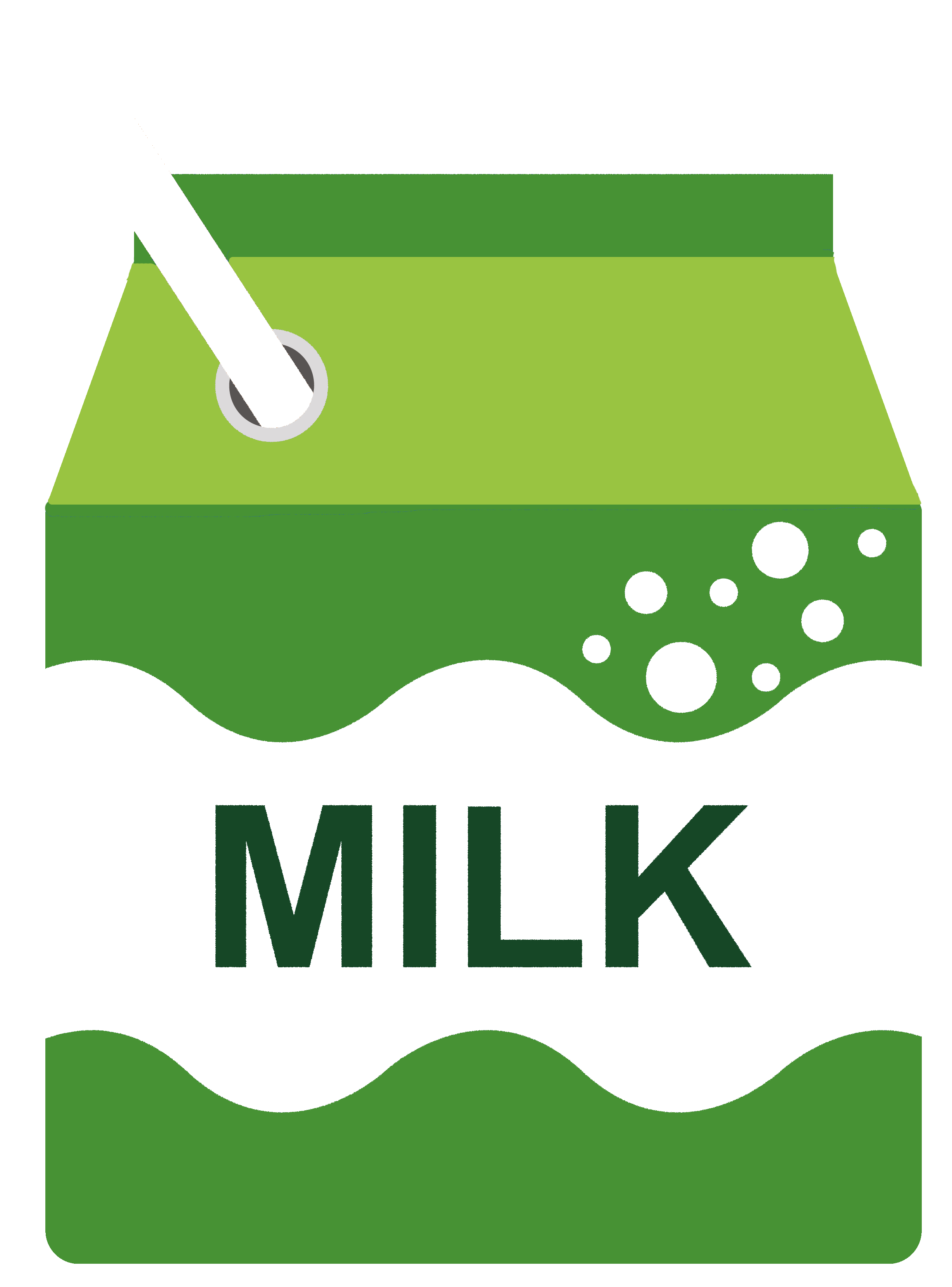
Individual Portions
“thirds”
Individual cartons are a good choice for schools and nurseries in terms of hygiene and ease of distribution, but this has to be measured against their environmental impact too.
Made from 77% renewable paperboard from FSC certified forests, and other controlled sources, and 23% plastic, to protect the milk inside from moisture, oxygen and light, The Tetra Brik beverage cartons package 189ml of milk safely.
The convenient, portion sized Tetra Pak cartons can be recycled where collection, sorting and recycling is in place. Tetra Pak are investing up to €100 million per year over the next five to ten years in sustainable solutions, a part of which is dedicated to packaging material innovation to help in the transition towards a circular economy.
Ask a member of our dedicated Customer Services Team if you think thirds might be best for your setting.
What Works
For you?
When it comes to embracing eco-friendly practices, there isn’t a one-size-fits-all approach. Our aim is to make informed decisions that minimise waste and suit your specific circumstances.
It’s a constant juggle, balancing the immediate needs of our families with the long-term health of the Earth. We’re always discovering new methods to strike this balance.

From emphasising the importance of reduce, reuse, and recycle, to being mindful of how our seemingly insignificant choices can ripple out, we can all contribute to preserving the planet. Whether your preference leans towards individual cartons, bulk purchases, or glass containers, the choice is entirely yours – and we’re here to support you every step of the way.
Mighty Milk
the Benefits
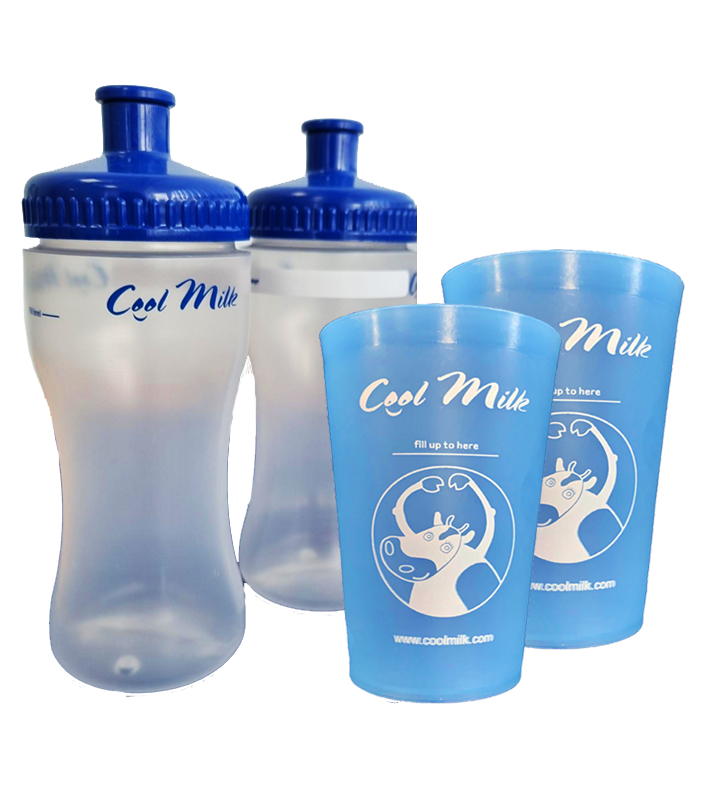
Reusable Bottles
& Beakers
Remember, if you’re not opting for 189ml self-contained cartons, you can inquire with our helpful team about receiving reusable bottles or beakers for your little ones.
Yes, it does entail a bit of extra washing up – but consider the reduction in waste you’ll achieve! Care providers quickly observe the positive impact this ‘reduce, re-use, recycle’ approach has on their waste, and children in schools and nurseries across the UK who are testing this approach enthusiastically agree that it fosters a greater awareness of actively reducing waste.
Bottles or beakers? Whilst both have their benefits, the beakers are great for teaching the children about dexterity and balance whilst pouring, whereas the bottles are better for avoiding any spillages and can be labelled with a child’s name – allowing them to be easily cleaned on site or sent home for parents to pop in the dishwasher.
